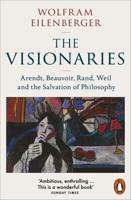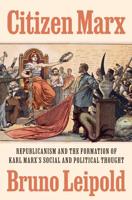Publisher's Synopsis
Why care what Hobbes thought about sex? Contemporary scholars have largely dismissed Hobbes's brief, and somewhat scattered, remarks about gender and sexuality as peripheral to his central concerns. In Hobbes on Sex, the first book-length study of Hobbes's writings on these topics, Susanne Sreedhar challenges this dismissal. Far from being haphazard or tangential, Hobbes's views on sex are integral to his broader philosophical-political project. Drawing out the underlying logic of his claims, this volume reconstructs a coherent, substantive, and distinctive account of sexual normativity from Hobbes's various remarks. It argues that, in stark contrast to many of his contemporaries and the traditions from which he emerges, Hobbes is logically committed to a view it calls sexual positivism. According to Hobbes, the nature and status of gender and sexuality--from the proper organization of marriage and the family, to prohibitions on sexual behaviors, to the differences between men and women, to the legitimacy of female rule--are entirely a matter of positive (i.e., civil) law. Because matters of gender and sexuality are the result of human action for Hobbes, they are fundamentally contingent and revisable. This contingency stands in contrast with the pervasive and entrenched ways both natural patriarchalism and sexual moralism were enthroned in much of early modern political theorizing. The volume argues that Hobbes's sexual positivism dethrones sex from its usual prominent position in the history of philosophy. By systematically stripping gender and sexuality of their privileged status, whether as a source of normativity or as a topic of inquiry, this dethroning of sex strikes at the heart of beliefs about human nature, moral knowledge, and social and political institutions that are widely accepted even today. This novel interpretation of Hobbes's views on sexual normativity not only challenges traditional understandings of the trajectory of early modern political thought, but it also suggests a new understanding of his place in the intellectual history of sex.











